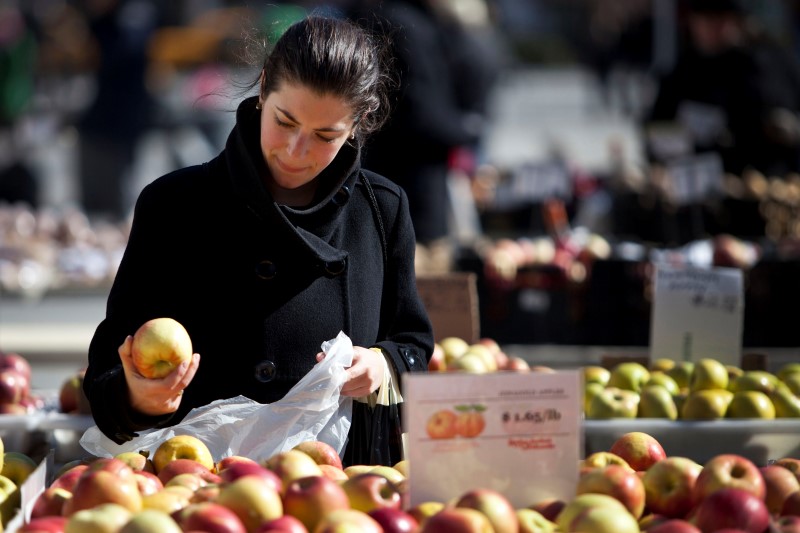By Leah Schnurr
OTTAWA, Jan 20 (Reuters) - Canada's annual inflation rate rose less than expected in December as cheaper food offset higher gasoline prices, leaving inflation below the Bank of Canada's target and reinforcing expectations the central bank will be on hold for some time.
A small retail sales gain in November was also underwhelming compared to economists' forecasts and the releases sent the Canadian dollar to a fresh two-week low. CAD/
The annual inflation rate rose to 1.5 percent, Statistics Canada said on Friday, short of expectations for 1.7 percent.
Gasoline prices jumped 5.5 percent. But annual food prices fell for the third consecutive month, down 1.3 percent as Canadians paid less for fresh fruit and vegetables.
Two of the three new measures of core inflation established by the Bank of Canada showed underlying inflation was closer to its 2 percent target.
The central bank said earlier this week that an interest rate cut remained possible if the risks from policy uncertainty in the United States materialize, though most economists expect the bank to hold steady into 2018. CA/POLL data was unlikely to change the bank's view of where the economy is, said Doug Porter, chief economist at BMO Capital Markets.
"I think it confirms ... that there's still a long way to go," Porter said. "There's still lots of slack in the economy and as a result, core inflation will remain relatively subdued."
CPI median, which shows the median inflation rate across CPI components, held at 2.0 percent after the previous month was revised up, while CPI trim, which excludes upside and downside outliers, was steady at 1.6 percent.
But CPI common, which the central bank has said has the best correlation to the output gap, was furthest away from target, edging up to 1.4 percent from 1.3 percent. It measures price changes across categories in the CPI basket.
Economists have said that using three measures instead of a single gauge of core inflation, as the bank previously has done, could make it difficult to determine what it will react to.
Retail sales rose 0.2 percent in November on car purchases, though that was short of expectations for 0.5 percent. volumes, which remove the effects of price changes, were stronger, up 0.7 percent, which should support economic growth in November.
Nonetheless, the economy is expected to have slowed at the end of the year after a sharp rebound in the third quarter.
<^^^^^^^^^^^^^^^^^^^^^^^^^^^^^^^^^^^^^^^^^^^^^^^^^^^^^^^^^^^ Graphic - Canada inflation, central bank rate:
http://link.reuters.com/cut67s Graphic - Canada economic snapshot:
http://tmsnrt.rs/2e8hNWV
^^^^^^^^^^^^^^^^^^^^^^^^^^^^^^^^^^^^^^^^^^^^^^^^^^^^^^^^^^^>
